Five Tips for Buying a Business
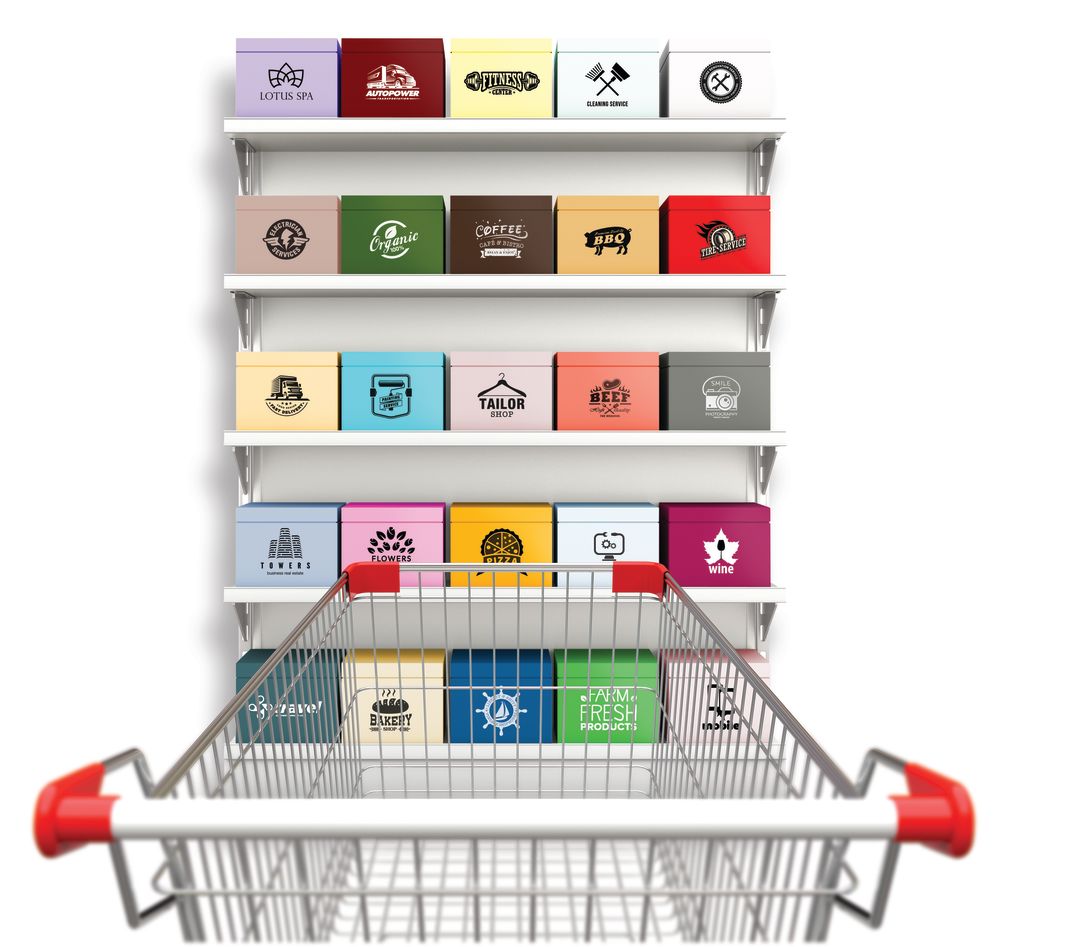
Image: Shutterstock
Diners enter and exit The Recipe Box Eatery in Bradenton at a steady chop. Owner Vickie Berends is greeting customers and ringing up checks.
“How was breakfast?” she asks.
“The only restaurant around here I like,” one customer replies.
Since Berends bought The Recipe Box in fall 2015, she hasn’t taken a vacation, but she’s experiencing no buyer’s remorse. The place grossed $675,000 in 2016, and although 2017 started slowly, she’s hoping for another successful year. Running a restaurant “is a little bit of work,” she concedes. The Recipe Box is open seven days a week. But after years in corporate management for eateries like Panera and Steak ’n Shake, Berends finds being her own boss so fulfilling that she hardly minds the 80-hour weeks.
“I get to create things,” she says. “It’s freedom of choice.”
Berends is not alone in craving freedom. The U.S. Bureau of Labor Statistics reports that about 10 percent of Americans are self-employed, but surveys show more than five times that number yearn for their own business. The internet feeds the fantasy. With just a few clicks, in Sarasota County you can buy an ice cream cart ($1,200, Craigslist), a “premium lawn service route and landscaping business” ($149,000, BizBuySell.com), or a “profitable & unique island coffee eatery yards from beach” ($389,000, Bizquest.com).
Yet 90 percent of Americans who search for businesses to buy never actually open shop, says Dennis Zink, consultant and nine-time small-business buyer or seller.
One reason locally is short supply. “We have more buyers than we know what to do with,” says David Sinclair of Sarasota-based Sinclair Brokerage, Inc. “We have an inventory problem. I don’t think buyers have enough choices.”
Compounding the tight supply are sellers’ unrealistic expectations, says Terry Williams of Sun Business Brokers of Sarasota. Owners who “have poured their blood and guts into a business—whether it’s successful or not—often want more out of it than it’s really worth,” says Williams. And those who have been pocketing cash and lowballing income to minimize taxes lack the paper trail to show the profits they claim.
Cold feet also put a brake on business deals. Especially for first-time buyers, the process can seem daunting.
Like a house sale, a business deal may or may not involve a broker. But don’t expect to find a handy list of “comps” for a mom-and-pop pizzeria or lawn service. According to Sinclair, the business market favors nondisclosure: Sellers don’t want to alert competitors who might lure away valuable employees or customers, and buyers want a quiet, seamless transition.
Despite these caveats, BizBuySell.com reports that annual small business transactions reached record levels in 2016. More than a quarter of Tampa-St. Petersburg-Clearwater businesses listed on the site sold (252 out of 933) with a median sale price of $140,000 (and a median asking price of $149,000) and median revenue of $341,371.
So how can you determine what a business is worth? The U.S. Small Business Administration (SBA) suggests investigating these factors:
• Capitalized earning—What return can the buyer expect on investment?
• Cash flow—How much money could the owner borrow and pay back?
• Tangible assets—What property does the business own? (The value is the replacement cost.)
• Intangible assets—How much would it cost to buy intangible assets (like goodwill or trademarks) rather than create them?
But experts agree valuation is a guesstimate. Zink says: “It really comes down to the price that a buyer is willing to offer and a seller is willing to accept.”
Another factor buyers should consider is whether the business has multiple long-term customers and not a single major client on whom too much depends.
Buyers also want a good location and a short learning curve. With a pool service, for instance, techs can teach new owners 90 percent of what they need to know in about a month, Williams says. He recalls one couple grossed $300,000 to $400,000 a year traveling the globe buying seashells to wholesale to U.S. gift stores, but when the husband had a heart attack, his specialized knowledge, a unique asset, died with him, and the widow couldn’t sell the business.
The real deal clincher? Clean books.
“Established businesses with good financials are hard to find,” says Sinclair says, “because why would the owner want to sell?”
Given all that, service businesses are probably the most sought after locally, followed by distribution and manufacturing, says Sinclair. But the highest turnover lies with restaurants. “It’s the hardest business to be in,” he says, “because every meal has to be perfect for every customer.”
Here are five steps if you’re ready to take the plunge.
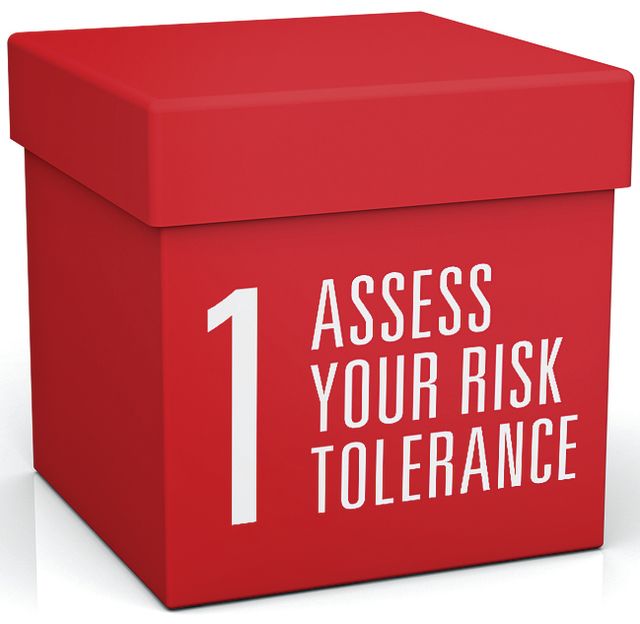
Assess Your Risk Tolerance
The three avenues for self-employment—start, buy or franchise a business—fall on a spectrum of risk. Huge risks attend the pursuit of huge rewards. Fortune magazine reports that nine out of 10 startups fail. Most new ventures disappear because there’s no demand for their goods or services, or the founders run out of cash.
At the other end of the spectrum, franchises offer tried-and-true formulas for modest success, but corporate may dictate everything from site selection to the color of tablecloths. “Some people just say, ‘I don’t want someone breathing down my throat,’” says business broker Mary Anne Servian of Murphy Business and Financial.
Acquiring an established business can offer more security than starting from scratch and more autonomy than franchising. Sometimes established businesses buy out their competitors, says Zink, or acquire a missing link in their supply chain. But especially in Southwest Florida, shoppers tend to be middle-aged folks with a nest egg who are relocating and/or leaving other careers. (Nationally, small business buyers are predominantly white college-educated men—women comprise 22 percent of buyers—over the age of 40, according to BizBuySell.) Buying a business may seem more remunerative or attainable than a staff position.
“They’re looking to buy a job,” says Servian.
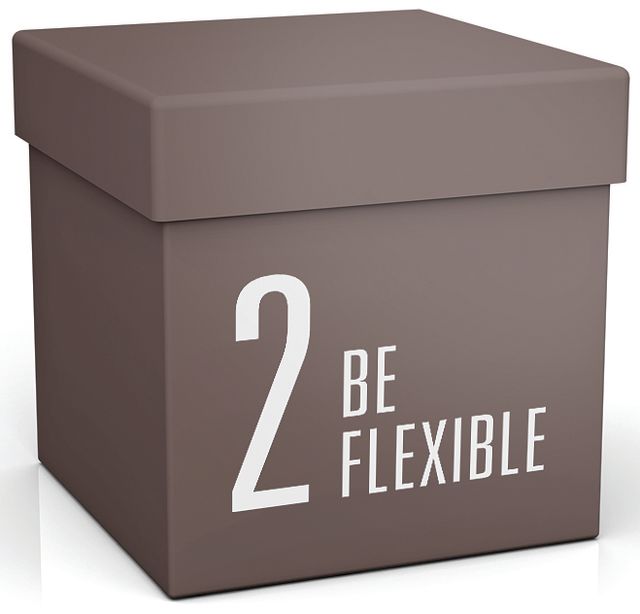
Be Flexible
Rather than searching for the dream job, advises Servian, buyers should look for a business that promises long-term sustainability. Or as Zink puts it, “Just because you can cook an omelet doesn’t mean you should buy a restaurant.”
Business brokers, whose minimum qualification is a real-estate license, can help a buyer through a long checklist of considerations. However, they represent either the seller or the transaction: They can advise buyers but not indemnify them. Several local brokers compare their services to matchmaking.
Servian interviews prospective buyers at length—jobs they’ve loved and hated, working capital, timeframe, visa issues (for foreign nationals), etc. She always asks for a buyer’s resume because sometimes a sidelight points to an overlooked compatibility with a business on the market. Putting together a deal often involves overcoming a buyer’s nerves and a seller’s second thoughts, tempering both parties’ financial expectations, and delivering ongoing reality checks. “You’re never going to find the perfect fit,” Servian says.
But good fits do happen. In 2014, for instance, brothers Stan and Carter Tracht bought Environeers, a Sarasota adventure outfitting store. Retail was a departure from the Trachts’ former wholesale consumer electronics business, but the deal “fell into our lap,” says Carter. He had moved back to Sarasota from Dallas to care for an ailing relative, and he spotted a for-sale sign in the store window. Turns out, the brothers knew the sellers, who had founded the business 23 years before. Stan moved back to Sarasota, and the brothers plunged into brick-and-mortar sales, including trading off weekends behind the counter.
“It was never hard,” says Carter. “I enjoy being here.”
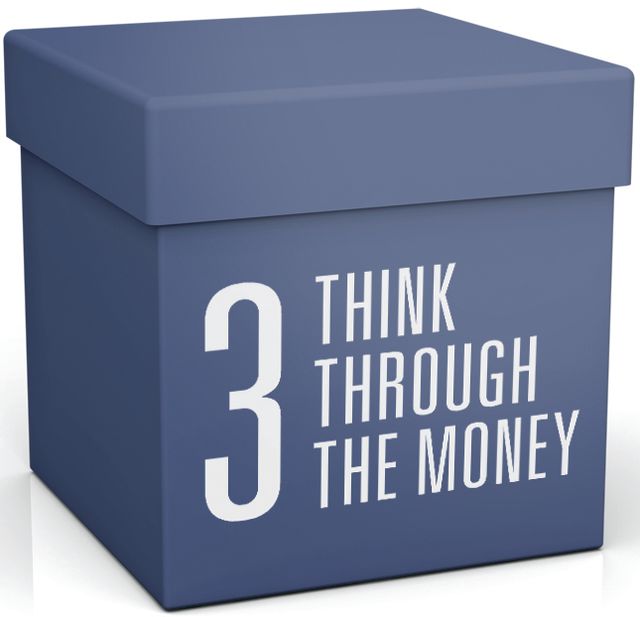
Think Through the Money
How much are you willing to invest in your new business? How much do you need to draw from it?
According to Sinclair, about 75 percent of his buyers pay cash, often drawing from their IRAs and other savings. Sellers rarely carry a note, and loans are hard to secure unless the books are perfect. SCORE reports that only 38 percent of businesses with revenues under $5 million get bank loans approved.
So if buyers need financing, lenders may shape their choices. The SBA, for instance, guarantees loans on favorable terms for both purchase and working capital. But the SBA inclines toward businesses with tangible assets, and its rigorous application requires a 25 percent down payment, according to Sinclair, and much documentation, including the buyer’s personal history.
Servian recalls a client with a plumbing background who managed to borrow $800,000 with SBA help to buy a fire sprinkler business with trucks, inventory, long-term employees and good recordkeeping.
“Every deal is different,” says Sinclair. But he and Servian both suggest writing some kind of post-closing relationship into the contract. Especially for mom-and-pop businesses, handing over the enterprises they’ve raised from birth churns up strong feelings. Having the seller train the new buyers, for instance, or introduce them to customers can both grease the sale and ease the transition.
Williams estimates that 25 percent of the deals he has brokered are all-cash and 70 percent are seller financed. Interest rates and other terms are negotiated, Williams says, which means that a deal can take weeks, even months, to hammer out.
Once the deal is consummated, you need enough cash to carry you through the launch. “With retail, you have to buy a lot of inventory up front,” says Carter Tracht. As he and his brother learned about the gear and clothing in Environeers, employee product knowledge was “the most valuable asset we acquired,” says Carter.
According to SCORE, small business owners report cash flow as their top challenge. A decade-old U.S. Bank study still cited widely attributes 82 percent of business failures to cash management problems. Consultants recommend having at least three months to six months—or more—of cash reserves. If you extend credit to customers, you need to allow time for your bills to go out and payments to come in.
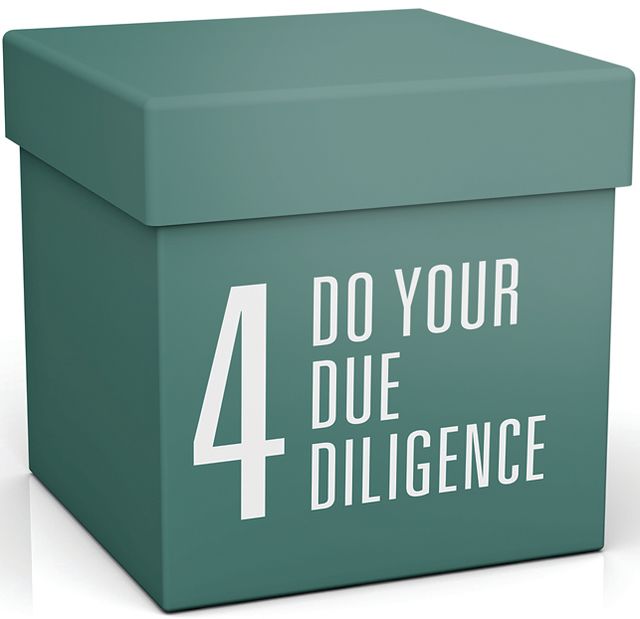
Do Your Due Diligence
Assemble a team. Servian and Sinclair recommend finding an experienced broker who belongs to the International Business Brokers Association, which offers coursework that can lead to a Certified Business Intermediary (CBI) designation. Also enlist an accountant to vet the books and a lawyer to represent your interests at closing.
“If someone is selling a nail salon for $120,000,” says Servian, “how did they come up with that figure?” Review everything, she says: profit and loss statements, tax returns, balance sheets, customer lists, insurance claims, lease agreements—whatever is available.
Look at the lease (or mortgage) terms, adds Sinclair. Ideally, the monthly payment shouldn’t exceed 10 percent of revenue.
Sellers’ broker Williams underscores the importance of due diligence. “Everybody has a horror story,” he says. “Sometimes sellers try to scam me, too.”
A letter of intent should open the books, and a buyer can back out if the financials don’t withstand scrutiny. Mystery shopping can also shed light on a business’s viability.
For example, restaurateur Berends was talking to a business broker, debating whether to open a restaurant from scratch or buy an existing establishment, when she spotted a listing for The Recipe Box—where she’d been eating dinner about twice a week for the past decade. With new eyes, she scoped out every meal, pleased to find the food just as good and the traffic just as busy as dinner.
Brokers’ fees for business sales run about three times the commission on home sales. Don’t overlook free help as well. The SBA has a deep website, and the award-winning Manasota chapter of the nonprofit SCORE provides free resources, tools and one-on-one mentoring, as well as low-cost workshops.
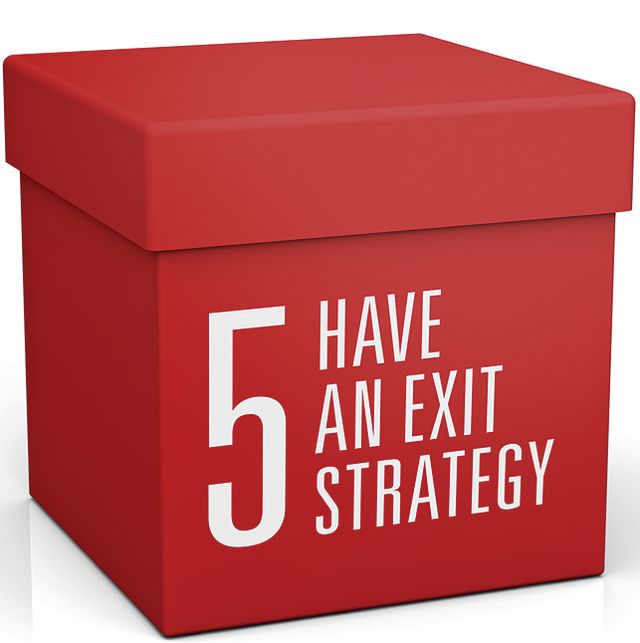
Have an Exit Strategy
Buy a business, build an empire—it’s the Golden Arches fantasy of Ray Kroc and other titans. Just remember, says Zink, “All businesses will eventually fail.” Think Radio Shack, A&P, Borders and Blockbuster. Although a few wineries from last century may still be bottling, Zink says businesses collapse with such regularity that a buyer’s goal should be to get in, have a good run and get out. “The question is: How many years can you ride the pony?”
The Tracht brothers aren’t contemplating leaving retail, though “online sales are constantly nipping at us,” says Carter. They’re relishing the ride. In fact, if Environeers continues to grow, he says, “Our goal is to open another business.”
Most Popular Businesses to Buy *
Retail 51%
Service 36.3 %
Manufacturing 4.5%
Internet 3.2%
Construction 2.6%
Wholesale 1.7%
Other 0.7%
*Based on number of sales by industry
SOURCE: BizBuySell’s 2016 Report